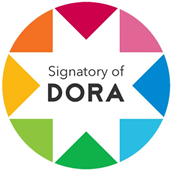Atividades gamificadas e interativas repaginando o ensino e aprendizagem de gramática em um curso online de English for Specific Purposes
DOI:
https://doi.org/10.31417/educitec.v8.1945Palavras-chave:
Atividades gamificadas e interativas, Gramática, Inglês para Fins EspecíficosResumo
Este estudo quasi-experimental examina a efetividade de atividades gamificadas e interativas no ensino e aprendizagem de gramática em um curso online de Inglês para Fins Específicos dirigido para a leitura de textos acadêmicos na área de Educação. A investigação, realizada em 2020, contou com a participação de 26 estudantes da área de Educação (graduação e pós-graduação) da Universidade Federal do Pará-Brasil. O curso foi criado seguindo as orientações provenientes de pesquisas sobre a inserção de atividades gamificadas e interativas no ensino e aprendizagem e sobre design instrucional. As atividades de aprendizagem foram disponibilizadas no Moodle da universidade participante (incluindo as ferramentas H5P e Hot Potatoes) e no site/app gratuito Duolingo for Schools. Os dados foram coletados antes (pré-teste) e ao final do curso (pós-teste e Planilha do Duolingo for Schools). As análises estatísticas comparando as médias revelaram resultados benéficos sobre os efeitos das tecnologias utilizadas para a aprendizagem dos estudantes. O estudo foi finalizado com a obtenção de respostas positivas referentes às hipóteses investigadas sobre a aprendizagem de gramática inglesa.
Downloads
Referências
AL-NAFISAH, K. I. H. Utilization of instructional games in EFL teaching. Journal of Emerging Trends in Educational Research and Policy Studies (JETERAPS), UK, v. 3, n. 1, p. 22-28, 2012. Disponível em: https://journals.co.za/doi/10.10520/EJC135419. Acesso em: 21 maio 2018.
ARAÚJO, M. S. Inglês para fins específicos: o desenho de um curso a partir da análise de necessidades. Revista Intercâmbio, São Paulo, v. 30, p. 51-79, 2015. Disponível em: https://revistas.pucsp.br/index.php/intercambio/article/view/25116/17924. Acesso em: 01 maio 2018.
BATAINEH, R. F.; MAYYAS, M. B. The utility of blended learning in EFL reading and grammar: a case for Moodle. The Journal of Teaching English with Technology, Cyprus, v. 17, n. 3, p. 35-49, 2017. Disponível em: https://eric.ed.gov/?id=EJ1149423. Acesso em: 20 dez. 2020.
BELL, K. Game on! Gamification, Gameful Design, and the rise of the gamer educator. Baltimore: Johns Hopkins University Press, 2018.
BIBER, D.; NEKRASOVA, T.; HORN, B. The effectiveness of feedback for L1-English and L2-writing development: a meta-analysis. ETS Toefl, 2011. Disponível em: https://eric.ed.gov/?id=EJ1111175. Acesso em: 18 maio 2021. DOI: https://doi.org/10.1002/j.2333-8504.2011.tb02241.x
BIGGS, J.; TANG, C. Teaching for quality learning at university. 4. ed. England: Open University Press, McGraw-Hill Education, 2011.
BRITISH COUNCIL. Demandas de aprendizagem de inglês no Brasil. Elaborado com exclusividade para o British Council pelo Instituto de Pesquisas Data Popular. 1. ed. São Paulo: British Council Brasil, 2014. Disponível em: https://www.britishcouncil.org.br/sites/default/files/demandas_de_aprendizagempesquisacompleta.pdf. Acesso em: 26 abr. 2018.
CHAPELLE, C. A. English Language Learning and Technology. Amsterdam: John Benjamins Publishing, 2003. DOI: https://doi.org/10.1075/lllt.7
CHAPELLE, C. A. The relationship between Second Language Acquisition Theory and Computer-Assisted Language Learning. Modern Language Journal, USA, v. 93, p. 741-753, 2009. DOI: https://doi.org/10.1111/j.1540-4781.2009.00970.x. Disponível em: https://onlinelibrary.wiley.com/doi/epdf/10.1111/j.1540-4781.2009.00970.x. Acesso em: 20 abr. 2020. DOI: https://doi.org/10.1111/j.1540-4781.2009.00970.x
DEMO, P. Educação hoje: “novas” tecnologias, pressões e oportunidades. São Paulo: Atlas, 2009.
DETERDING, S. et al. Gamification: Toward a definition. In: CHI Gamification Workshop, Vancouver, 2011. Proceedings… Vancouver: 2011, p. 12-15. Disponível em: http://gamification-research.org/wp-content/uploads/2011/04/02-Deterding-Khaled-Nacke-Dixon.pdf. Acesso em: 26 jun. 2018.
DUDLEY-EVANS, T.; ST. JOHN, M. Developments in ESP: A multi-disciplinary approach. England: Cambridge University Press, 1998.
EF Education First. EF English Proficiency Index (EPI): A ranking of 100 countries and regions by English skills, 2020. Disponível em: https://www.ef.com/wwen/epi/. Acesso em: 23 fev. 2021.
ELLIS, R. Current issues in the teaching of grammar: an SLA perspective. TESOL Quarterly,[S. l.], v. 4, n. 1, p. 83-107, 2006. DOI: https://doi.org/10.2307/40264512. Disponível em: https://onlinelibrary.wiley.com/doi/epdf/10.2307/40264512. Acesso em: 12 jul. 2018. DOI: https://doi.org/10.2307/40264512
ELLIS, R.; LOEWEN, S.; ERLAM, R. Implicit and explicit corrective feedback and the acquisition of L2 grammar. Studies in Second Language Acquisition, Cambridge, v. 28, n. 2, p. 339-368, 2006. DOI: https://doi.org/10.1017/S0272263106060141. Disponível em: https://www.cambridge.org/core/journals/studies-in-second-language-acquisition/article/implicit-and-explicit-corrective-feedback-and-the-acquisition-of-l2-grammar/CDE67D4A4E286921DA4BE9C40BAD9FE6. Acesso em: 18 dez. 2020.
FANDOS-HERRERA, C. et al. Introducing the discussant role to stimulate debate in the classroom: effects on interactivity, learning outcomes, satisfaction and attitudes. Studies in Higher Education, Melbourne, v. 44, n. 2, p. 380–396, 2019. DOI: https://doi.org/10.1080/03075079.2017.1366437. Disponível em: https://www.tandfonline.com/doi/abs/10.1080/03075079.2017.1366437?journalCode=cshe20. Acesso em: 01 jun. 2021. DOI: https://doi.org/10.1080/03075079.2017.1366437
FARROKHI, F. et al. The effect of discourse-based grammar teaching on reading comprehension ability in Iranian EFL context. IJALEL, Australia, v. 8, n. 1, p.162-170, 2019. Disponível em: http://www.journals.aiac.org.au/index.php/IJALEL/article/view/5259. Acesso em: 16 out. 2020.
FIELD, A. Descobrindo a Estatística usando o SPSS. Porto Alegre: Artmed, 2009.
GAGNÉ, R. M.; BRIGGS, L. J.; WAGER, W. W. Principles of Instructional Design 4. ed. Orlando: HBJ College Publishers, 1992.
GARCÍA BOTERO, G.; QUESTIER, F. What students think and what they actually do in a mobile assisted language learning context. In: PAPADIMA-SOPHOCLEOUS, S; BRADLEY, L.; THOUËSNY S. (Eds), CALL communities and culture: short papers from EUROCALL 2016, p. 150-154, 2016. Disponível em: Disponível em: https://eric.ed.gov/?id=ED572176. Acesso em: 05 dez. 2020. DOI: https://doi.org/10.14705/rpnet.2016.eurocall2016.553
GEE, J. P. Learning and Games. In: K. Alen (Ed.). The Ecology of Games: Connecting youth, games, and learning. Cambridge, MA: The MIT Press, 2008.
GÓMEZ, A. I. P. Educação na era digital. Porto Alegre: Penso, 2015.
GRESSICK J.; LANGSTON J. B. The Guilded Classroom: using gamification to engage and motivate undergraduates. Journal of the Scholarship of Teaching and Learning, Indiana, v. 17, n. 3, p. 109-123, 2017. Disponível em: https://eric.ed.gov/?id=EJ1151568. Acesso em: 30 out. 2019. DOI: https://doi.org/10.14434/v17i3.22119
HANUS, M. D.; FOX, J. Assessing the effects of gamification in the classroom. Computers & Education,[S. l.] v. 80, p. 152-161, 2015. Disponível em: https://www.sciencedirect.com/science/article/abs/pii/S0360131514002000. Acesso em: 19 jun. 2018. DOI: https://doi.org/10.1016/j.compedu.2014.08.019
HASHEMI, A.; DANESHFAR, S. The impact of different teaching strategies on teaching grammar to college students. Theory and Practice in Language Studies, Londres, v. 8, n. 3, p. 340-348, 2018. DOI: http://dx.doi.org/10.17507/tpls.0803.10. Disponível em: http://www.academypublication.com/issues2/tpls/vol08/03/10.pdf. Acesso em: 08 maio 2019. DOI: https://doi.org/10.17507/tpls.0803.10
HATTIE, J.; TIMPERLEY, H. The power of feedback. Review of Educational Research, Washington, v. 77, n. 1, p. 81–112, 2007. DOI: https://doi.org/10.3102/003465430298487. Disponível em: https://journals.sagepub.com/doi/10.3102/003465430298487. Acesso em: 04 jun. 2020. DOI: https://doi.org/10.3102/003465430298487
HUH, Y.; REIGELUTH, C. M. Designing instruction for self-regulated learning. In: REIGELUTH, C. M.; BEATTY, B. J.; MYERS, R. D. (Eds.). Instructional Design theories and models: The learner-centered paradigm of education. Routledge, 2017, v. IV, p. 243-268.
KAPP, K. M. Games, gamification, and the quest for learner engagement. Talent Development, [S. l], n. 66, p. 64-68, 2012. Disponível em: https://www.td.org/magazines/td-magazine/games-gamification-and-the-quest-for-learner-engagement. Acesso em: 17 maio 2018.
KAPP, K. M.; BLAIR, L.; MESCH, R. The Gamification of Learning and Instruction Fieldbook: Ideas into practice. San Francisco: Wiley, 2013.
KAPP, K. Gamification designs for instruction. In: REIGELUTH, C. M.; BEATTY, B. J.; MYERS, R. D. (Eds.). Instructional Design theories and models: the learner-centered paradigm of education. New York: Routledge, 2017, v. IV, p. 351-383.
KUKULSKA-HULME, A. Personalization of language learning through mobile technologies. Cambridge University Press, 2016. Disponível em: https://www.cambridge.org/us/files/1815/7488/8164/CambridgePapersinELT_M-learning_2016_ONLINE.pdf. Acesso em: 11 fev. 2021.
LARSEN-FREEMAN, D. Techniques and Principles in Language Teaching. 2. ed. Oxford: Oxford University Press, 2000.
LEANING, M. A study of the use of games and gamification to enhance student engagement, experience and achievement on a theory-based course of an undergraduate media degree. Journal of Media Practice, Reino Unido, v. 16, n. 2, p. 155-170, 2015. DOI: https://doi.org/10.1080/14682753.2015.1041807. Disponível em: https://www.tandfonline.com/doi/full/10.1080/14682753.2015.1041807. Acesso em: 29 abr. 2018. DOI: https://doi.org/10.1080/14682753.2015.1041807
LÉVY, P. Cibercultura. São Paulo: Editora 34, 2000.
LIGHTBOWN, P. M.; SPADA, N. How languages are learned. 3. ed. Oxford: Oxford University Press, 2011.
MALLIA, J. G. Inductive and Deductive Approaches to Teaching English Grammar. Arab World English Journal-AWEJ, [S. l.], v. 5, n. 20, p. 221-235, 2014. Disponível em: https://awej.org/inductive-and-deductive-approaches-to-teaching-english-grammar/. Acesso em: 10 mar. 2020.
MALONE, T.W.; LEPPER, M. R. In: SNOW, R. E.; FARR, M. J. (Eds.). Aptitude, learning, and instruction: Conative and affective process analyses. Hillsdale, NJ: Lawrence Erlbaum Associates Publishers, 1987, v. 3, p. 223-253.
MILES, S. Spaced vs. massed distribution instruction for L2 grammar learning. System, [S. l.], 42, p. 412–428, 2014. DOI: https://doi.org/10.1016/j.system.2014.01.014. Disponível em: https://www.sciencedirect.com/science/article/abs/pii/S0346251X14000219?via%3Dihub. Acesso em: 10 maio 2021. DOI: https://doi.org/10.1016/j.system.2014.01.014
MORAN, J. M. Ensino e aprendizagem inovadores com apoio de tecnologias. In: MORAN, J. M.; MASETTO, M. T.; BEHRENS, M. A. Novas tecnologias e mediação pedagógica. 21. ed. Campinas-SP: Papirus, 2013, p. 11-72.
MUHAMMED, A. C. P.; JOSHI, P.; HAREESH, S. Omani EFL students’ preference of grammar teaching method. Language in India, India, v. 18, n. 1, p. 1-21, 2018. Disponível em: http://www.languageinindia.com/jan2018/aliomanieflstudentspreferncesfinal1.pdf. Acesso em: 11 dez. 2020.
MYKOTA, D. The effective affect: a scoping review of social presence. International Journal of E-Learning & Distance Education-IJEDE, Canadá, v. 33, n. 2, p. 1-30, 2018. Disponível em: https://files.eric.ed.gov/fulltext/EJ1201382.pdf. Acesso em: 07 fev. 2021.
NORRIS, J. M.; ORTEGA, L. Effectiveness of L2 instruction: a research synthesis and quantitative meta-analysis. Language Learning, Michiga, v. 50, p. 417–528, 2000. DOI: https://doi.org/10.1111/0023-8333.00136. Disponível em: https://onlinelibrary.wiley.com/doi/epdf/10.1111/0023-8333.00136. Acesso em: 23 dez. 2020. DOI: https://doi.org/10.1111/0023-8333.00136
OBEIDAT, M. M.; ALOMARI, M. A. The effect of inductive and deductive teaching on EFL undergraduates’ achievement in grammar at the Hashemite University in Jordan. International Journal of Higher Education, [S. l.], v. 9, n. 2, p. 280-288, 2020. DOI: https://doi.org/10.5430/ijhe.v9n2p280. Disponível em: https://www.sciedu.ca/journal/index.php/ijhe/article/view/17312. Acesso em: 11 maio 2021. DOI: https://doi.org/10.5430/ijhe.v9n2p280
PAPERT, S. A máquina das crianças: repensando a escola na era da Informática. Porto Alegre: Editora Artes Médicas, 1994.
PASQUALI, L. Psicometria: teoria dos testes na Psicologia e na Educação. Petropólis: Vozes, 2003.
PERKINS, D. N. Smart schools: better thinking and learning for every child. New York: The Free Press, 1992.
PIRASTEH, P. The effectiveness of computer-assisted language learning (CALL) on learning grammar by Iranian EFL learners. In: International Conference on Current Trends in ELT. Procedia - Social and Behavioral Sciences, [S. l.], 98, 1422-1427, 2014. DOI: https://doi.org/10.1016/j.sbspro.2014.03.561. Disponível em: https://www.sciencedirect.com/science/article/pii/S1877042814026524?via%3Dihub. Acesso em: 11 jun. 2018. DOI: https://doi.org/10.1016/j.sbspro.2014.03.561
REIGELUTH, C. M. What is Instructional Design Theory and how is it changing? In: REIGELUTH, C. M. (Ed.). Instructional Design theories and models: a new paradigm of Instructional Theory. New York: Routledge, 1999, v. II, p. 5-30.
REIGELUTH, C. M.; MYERS, R. D.; LEE, D. The learner-centered paradigm of education. In: REIGELUTH, C. M.; BEATTY, B. J.; MYERS. R. D. (Eds.). Instructional Design theories and models: the learner-centered paradigm of education. New York: Routledge, 2017, v. IV, p. 5-32. DOI: https://doi.org/10.4324/9781315795478
RYAN, R. M.; DECI, E. L. Intrinsic and Extrinsic Motivations: Classic Definitions and New Directions. Contemporary Educational Psychology, [S. l.], v. 25, p. 54–67, 2000. DOI: https://doi.org/10.1006/ceps.1999.1020. Disponível em: https://www.sciencedirect.com/science/article/pii/S0361476X99910202?via%3Dihub. Acesso em: 29 nov. 2020. DOI: https://doi.org/10.1006/ceps.1999.1020
RYAN, R. M.; DECI, E. L. Self-determination theory: basic psychological needs in motivation, development, and wellness. New York: The Guilford Press, 2017. DOI: https://doi.org/10.1521/978.14625/28806
SALOMÃO, S. T.; PEDRO, N. Mashup de tecnologias sob a égide da Teoria do Design Instrucional: um curso online de inglês para leitura académica. Interacções, Portugal, v. 17, n. 58, p. 5-31, 2021. DOI: https://doi.org/10.25755/int.25189. Disponível em: https://revistas.rcaap.pt/interaccoes/article/view/25189. Acesso em: 22 dez. 2021.
SKINNER, B. F. Teaching Machines. Science, EUA, v. 128, n. 3330, p. 969-977, 1958. Disponível em: https://app.nova.edu/toolbox/instructionalproducts/edd8124/fall11/1958-Skinner-TeachingMachines.pdf. Acesso em 08 abr. 2021. DOI: https://doi.org/10.1126/science.128.3330.969
STONE, C.; SPRINGER, M. Interactivity, connectedness and ‘teacher-presence': engaging and retaining students online. Australian Journal of Adult Learning, Australia, v. 59, n. 2, p. 146-169, 2019. Disponível em: https://files.eric.ed.gov/fulltext/EJ1235966.pdf. Acesso em: 07 abr. 2021.
TOPÎRCEANU, A. Gamified learning: a role-playing approach to increase student in-class motivation. Procedia Computer Science, [S. l.], v. 112, p. 41–50, 2017. DOI: https://doi.org/10.1016/j.procs.2017.08.017. Disponível em: https://www.sciencedirect.com/science/article/pii/S187705091731356X?via%3Dihub. Acesso em: 22 maio 2018. DOI: https://doi.org/10.1016/j.procs.2017.08.017
TUCKMAN, B. W. Manual de investigação em Educação. Lisboa: Fundação Calouste Gulbenkian, 2012.
TUDINI, V. Interactivity in the teaching and learning of foreign languages: what it means for resourcing and delivery of online and blended programmes. The Language Learning Journal, [S. l.], v. 46, n. 2, p. 132–145, 2018. DOI: https://doi.org/10.1080/09571736.2014.994183. Disponível em: https://www.tandfonline.com/doi/full/10.1080/09571736.2014.994183. Acesso em: 03 fev. 2021. DOI: https://doi.org/10.1080/09571736.2014.994183
VALENTE, J. A. Diferentes usos do computador na Educação. In: Valente, J. A. (Org.). Computadores e Conhecimento: repensando a educação. 2. ed. Campinas: NIED-UNICAMP, 1998, p.1-28.
VIRTANEN, H.; NORRGRANN, A. How can interactivity be facilitated in a Massive Open Online Course? Nordic Journal of Business, Finlândia, v. 69, n. 3, p. 24-46, 2020. Disponível em: https://helda.helsinki.fi/dhanken/handle/10227/382284. Acesso em: 07 jun. 2021.
WICHADEE, S.; PATTANAPICHET, F. Enhancement of performance and motivation through application of digital games in an English language class. Teaching English with Technology, Cyprus, v. 18, n. 1, p. 77-92, 2018. Disponível em: https://eric.ed.gov/?id=EJ1170635. Acesso em: 18 abr. 2018.
WISNIEWSKI, B.; ZIERER, K.; HATTIE, J. The power of feedback revisited: A meta-analysis of educational feedback research. Frontiers in Psychology, Suíça, v. 10, p. 1-14, 2020. DOI: https://doi.org/10.3389/fpsyg.2019.03087. Disponível em: https://www.frontiersin.org/articles/10.3389/fpsyg.2019.03087/full, Acesso em: 01 fev. 2021. DOI: https://doi.org/10.3389/fpsyg.2019.03087
WRIGHT, A.; BETTERIDGE, D.; BUCKBY, M. Games for language learning. 3. ed. Cambridge: Cambridge University Press, 2006. DOI: https://doi.org/10.1017/CBO9780511667145
Downloads
Publicado
Como Citar
Edição
Seção
Licença

Este trabalho está licenciado sob uma licença Creative Commons Attribution 4.0 International License.

Este trabalho está licenciado sob uma Licença Internacional Creative Commons Attribution 4.0
Esta licença permite que outros compartilhem, copiem, redistribuam o material em qualquer meio ou formato, adaptem, remixem, transformem e desenvolvam o material a partir do seu trabalho, mesmo que comercialmente, atribuindo o devido crédito e fornecendo um link para a licença.
Os artigos publicados são de propriedade e inteira responsabilidade dos seus autores, que poderão dispor deles para posteriores publicações, sempre fazendo constar a edição original, não cabendo qualquer responsabilidade legal sobre seu conteúdo à Revista EDUCITEC.
















